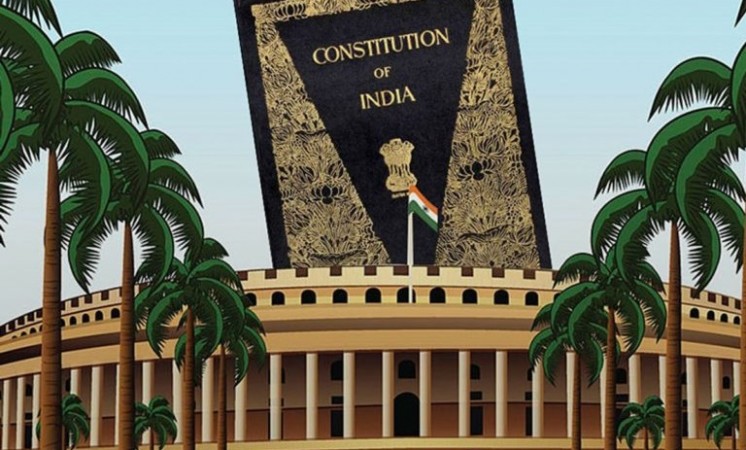
By Jacob Peenikaparambil: The Indian parliament that met for the monsoon session on 19th July was expected discuss issues confronting people after the disastrous Covid second wave like the crumbling health care system, slow pace of Covid vaccination, mounting unemployment and the consequent loss of livelihood etc. Instead of discussing the urgent issues affecting people, what people of India witnessed, were frequent disruptions and deadlocks in the parliament over the issue of the Pegasus snooping scandal.
If democracy is understood and used only as a means for acquiring power and remaining in power, dialogue has no place in it. If the ruling party and the opposition are concerned about the wellbeing of people, they will devote time to discussing issues affecting people in order to bring out the best solutions. The ruling party should have allowed a discussion on the Pegasus snooping scandal, since it affects national security and the fundamental rights of citizens whose phones were spied on. Denial is not a solution. The opposition parties instead of stalling the procedures in Rajya Sabha and Lok Sabha should have asked tough questions to the government regarding availability of vaccines, ways and means to revive economy and generate employment and plans for rebuilding the grossly inadequate and ineffective health care system that crumbled during the second wave of coronavirus.
In a democracy, the role of the opposition is not to oppose everything the government does, but to challenge the government by proposing better alternative policies and programmes for solving the problems of people, and making the government accountable by pointing out failures, gaps and aberrations. The government or the party in power should be open to criticisms and accommodate the views of the opposition parties in view of the greater good people and of the nation. The best form of decision making is decision by consensus, and it requires openness and readiness to give and take from the part of the government and the opposition parties. A brute majority in the parliament can make the party in power arrogant and reluctant to listen to the opposition. Both the opposition parties and the ruling party are equally responsible for the present stalemate in the parliament.
If the democratic institutions become dysfunctional, there is a danger of people losing their trust in democracy. If democracy is not able to deliver what is promised in the preamble of the Indian constitution: justice, equality, liberty, and fraternity, which ensures individual dignity, and people continue to face violence by the state and non-state actors, rotten health care, increasing unemployment and social unrest, people can lose faith in the system.
The citizens of India are to be educated about the democratic institutions and democratic processes, and they should imbibe the culture of democracy from childhood onwards. Parents should consult the family members, including children, before making decisions. Similarly in the schools, the teachers and principals also should involve students in the process of decision making. Instead of appointing student leaders by the principal the students should be given the freedom to elect their representatives. The students’ council is to be involved in the decision-making process as regards the programmes, especially co- curricular activities, organizing school annual day, sports day etc.
Civil society organizations and faith based organizations also should practice democracy in their governance. Thus from family to the parliament democracy has to become a way of life characterized by respecting diversity, listening to the views of all and taking decisions as far as possible by consensus.
Read More Articles from the Author: